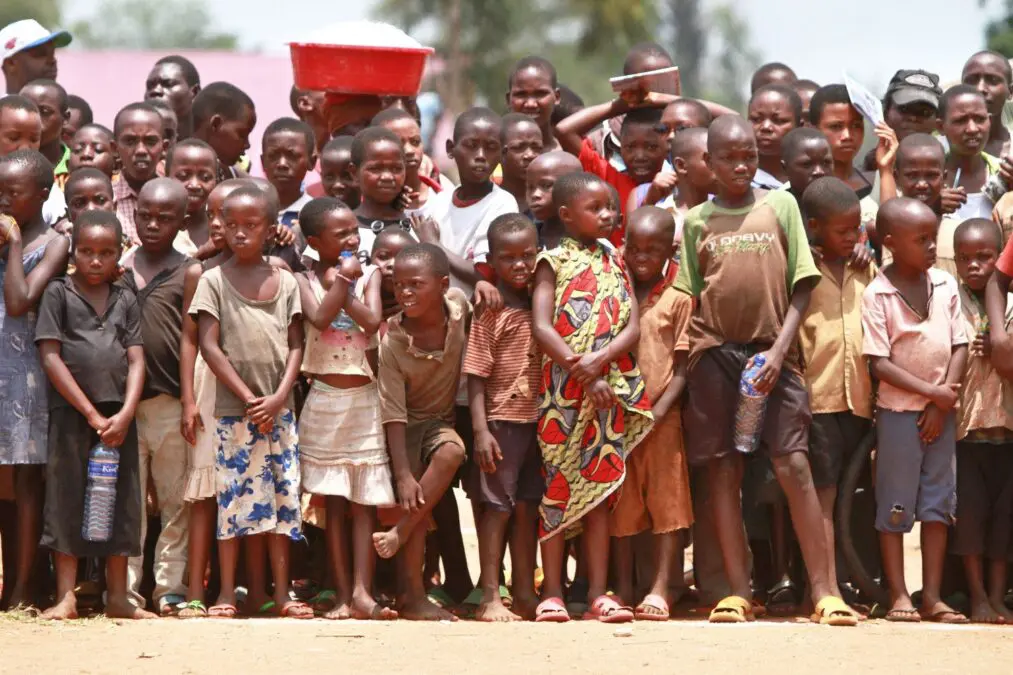According to the annual index for the happiest nation, the inhabitants of the small African country of Burundi are the unhappiest. Most of its more than 10 million citizens are dissatisfied with their lives.
This country is poor and one of the least developed in the world. It ranks 157th in the ranking of happy nations.
The ancient and medieval history of Burundi is not well studied. The first European to arrive here was John Hannig, who traveled with Richard Burton around Lake Tanganyika in 1858.
At the end of the 19th century, colonizers and missionaries arrived. The independence of the Kingdom of Burundi was declared only in 1962. An authoritarian royal regime was established in the country, replaced by a military dictatorship after a coup. In 1981, the country gained a constitution and a president.
Meanwhile, there are inter-ethnic clashes. Relative calm in Burundi did not occur until the beginning of the 21st century, thanks to the international presence.
54% of the country’s exports are from coffee. Tea, cotton and leather are also exported. Fish are caught in Lake Tanganyika.
Burundi is home to people from the Hutu, Tutsi, Lingala, and Pygmy tribes. The official languages in the country are Kirundi and French. English became the third official language of the country in 2014. Of these, only Kirundi is spoken by the vast majority of the population. It is recognised as the national language by the Burundian constitution of 2005.
To the southwest, Burundi is washed by Lake Tanganyika – the longest in the world and one of the deepest. The country borders Rwanda, Congo and Tanzania.
Burundi has no sea, the climate is predominantly tropical. This is an agricultural and grazing country. As a result, there is deforestation, soil erosion and destruction of the environment. Due to overcrowding, forests are almost completely cut down.
Before that, the fauna of Burundi was quite rich. Now there live elephants, hippos, crocodiles, wild boars, lions, antelopes, flying lemurs. Due to the increase in the number of people, the population of many species is decreasing and even disappearing.
There are no railways in this country, the rivers are not navigable. Only 7% of the roads are paved.
The inhabitants of Burundi are young: 45.1% of the population is under 15, 29% is between 15 and 29 years old. Only 0.1% are over 85 years old.
93% of the population professes Christianity. Most of them are Catholics and Pentecostals. Local traditional beliefs are professed by 5.5%, Muslims are 130,000.
In Burundi, they believe in destiny in the image of Imani, which is considered a source of life and goodness. Traditional religion is a form of animism that imparts spiritual essence to physical objects. There is a cult of dead ancestors. Animals also have spiritual power.
The national currency is the Burundian franc, which is equivalent to 0.0005 USD. The main products consumed in the country are cassava, beans, bananas, sweet potatoes, cereals and sorghum.
It is estimated that meat consumption in the country is only 48 calories per person per day (10% of the world average).
Most of the industrial enterprises are located in the largest city of Bujumbura. They are engaged in the processing of cotton, the production of coffee, tea, vegetable oil and wood, as well as the production of beverages, soap, shoes, insecticides, building materials and furniture.
Burundi is one of the poorest countries in the world. More than half of the population lives below the poverty line. Prolonged inter-tribal conflicts and the threat of civil war are causing serious damage to the economy.
Lead ore, tungsten, gold, peat, nickel and uranium are mined in Burundi, but in small quantities. Available platinum reserves are not yet being recovered.
The country depends on international economic aid and therefore has a large foreign debt. Fishing in Tanganyika is also an important part of the population’s income.
Citizens are actively leaving their homeland. The migration rate is one of the highest in the world.







